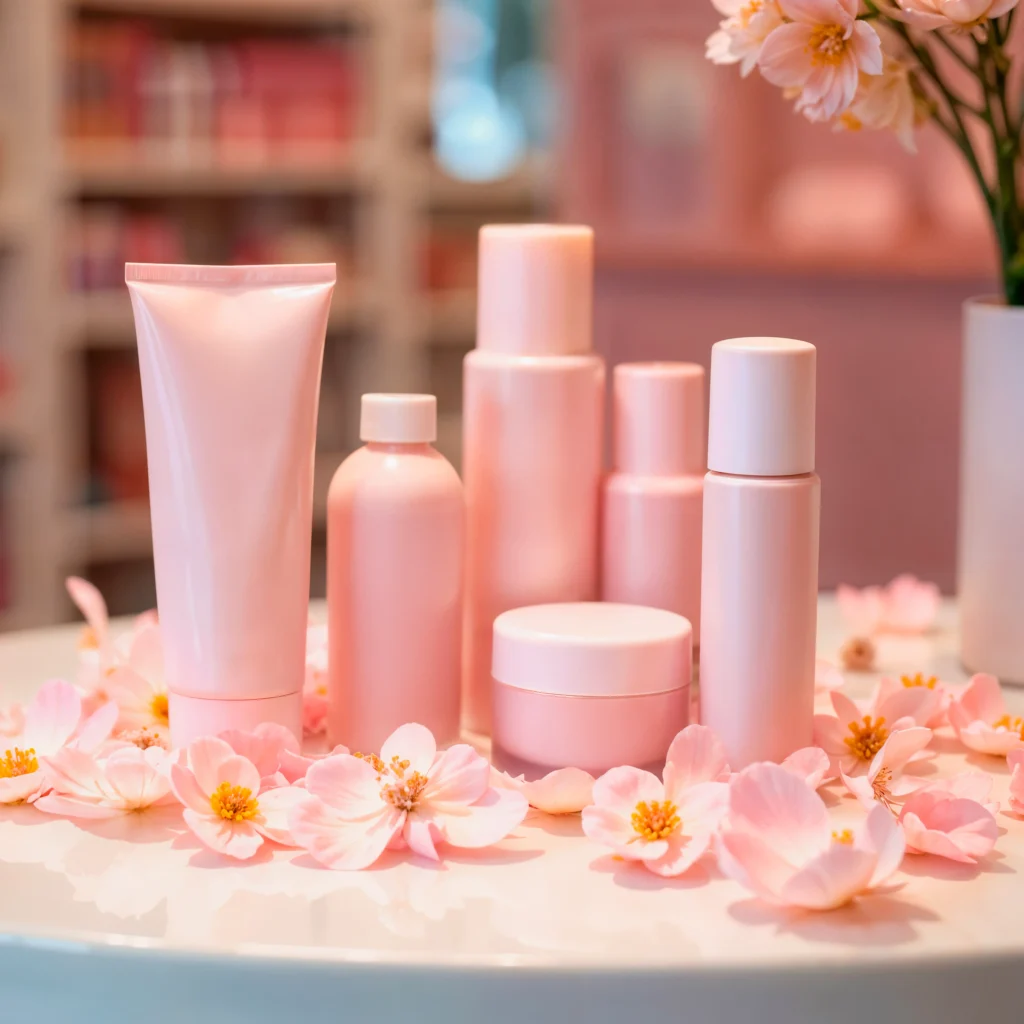Cosmetic company dreams often begin with a simple idea—like mixing natural ingredients at home or solving a personal skincare issue. This is the dream for many budding beauty entrepreneurs. Some famous examples include Glossier, which Emily Weiss founded after running a skincare blog for years. It is now a brand with a valuation of over $1 billion.
If you have ever wanted to launch your own cosmetic brand, it is now the time. The soaring demand for clean and niche beauty product types has made it possible today for the average American to set and start his or her own skincare brand.

So how would you actually go about starting a skincare business in the USA? You form your own formulations, or do you go to a private label skincare USA company? What legal steps would you want to take? How do you intend to market your brand and make it stand out?
This step-by-step guide will answer all of those questions and more. In fact, it will usher you through choosing a niche for your cosmetics, finding manufacturers, and starting a profitable business.
And the best part: you could do it without doing it all by yourself. Maker’s Row is a well-vetted platform of American manufacturing and has connected thousands of small businesses like yours with industry-leading suppliers and private label skincare usa partners.
Let’s dive into how to build your dream cosmetic brand—from your first product idea to your first sale.
Why Start a Cosmetic Brand Now?
There has never been a better time to launch your own cosmetic brand. The beauty industry is growing fast, especially in the US.
The US beauty market crossed $100 billion in 2024. This figure is expected to continue to grow in 2025 onwards. Among these, skincare is the top-performing segment. Clean beauty, vegan products, and natural ingredients are hot in demand.

This means that starting a skincare brand now gives you a huge advantage. Consumers want safer, healthier, and more ethical skincare solutions. Additionally, social media trends and influencer marketing have made it easier for new brands to go viral overnight.
And here’s the best part: You don’t need to start from scratch. By choosing a private label skincare USA partner, you can launch quickly and affordably.
More and more entrepreneurs are using this model to start a skincare business with low risk and high returns. The rise of e-commerce platforms like Shopify and Amazon also makes it easier to sell your cosmetic company’s products globally.
So, whether you’re looking to build a niche skincare brand or scale a large cosmetic company, the opportunity is now.
Want to know The 5 Biggest Mistakes Cosmetic Factories Make When Trying to Get More Clients? Read this blog
Key Stats (2024):
| Metric | Data |
| US Beauty Industry Size | $100+ Billion |
| Skincare Segment Market Share | 42% of total beauty market |
| Growth Rate of Private Label Skincare | 5.8% annually |
| Natural & Organic Product Demand | Increased by 20% year-over-year |
| Average Startup Cost (Private Label) | $2,000 – $20,000 |
| Social Media Influence on Beauty Buyers | 67% trust influencers over ads |
| E-commerce Share in Skincare Sales | Over 52% of all skincare purchases |
How Maker’s Row Helps You Launch a Successful Cosmetic Brand in the USA
Maker’s Row is a platform that connects entrepreneurs with trusted US-based manufacturers. If you want to launch your own cosmetic brand or skincare brand, Maker’s Row makes the process faster and easier. You can browse hundreds of private label skincare USA suppliers, packaging experts, and product developers—all in one place. This saves you time, reduces risks, and helps you find partners who understand FDA regulations and beauty industry standards. Whether you’re looking to prototype a custom formula or scale a full cosmetic company, Maker’s Row supports every step of your journey. It’s the go-to resource for anyone ready to start a skincare business in the USA.

How to Start a Cosmetic Brand in the USA: Step-by-Step Guide
Step 1: Research the Cosmetic Industry
Before starting your cosmetic brand, understand the market. Identify your niche and audience. Are you focusing on anti-aging, acne, or vegan products?
Tip: Use Google Trends and Statista for market research.

Step 2: Decide on Product Line
Choose products that reflect your vision. Most new brands start with a few SKUs. For example:
- Face cleansers
- Moisturizers
- Serums
- Toners
Choosing a private label skincare USA partner can simplify this step. They offer pre-made formulas ready for branding.

Step 3: Develop a Business Plan
A business plan helps attract investors and keeps you focused.
Key points to include:
- Mission and vision
- Target audience
- Product offerings
- Budget and pricing
- Marketing strategies
Bonus: Add projected cash flow and break-even analysis.

Step 4: Choose Private Label or Custom Formula
To start a skincare business quickly, go with a private label skincare USA supplier. These companies handle formulation, testing, and production.
Examples of US Private Label Suppliers:
| Company Name | Services Offered |
| RainShadow Labs | Organic skincare production |
| Radical Cosmetics | Color and skincare formulations |
| Onoxa | Low MOQ private label options |
Step 5: Brand Your Cosmetic Company
Your brand is your identity. Choose a name, design a logo, and create packaging. Make sure it’s unique, simple, and resonates with your target market.
Tip: Use Canva or hire a designer.

Step 6: Ensure FDA Compliance
The FDA regulates cosmetic products in the US Even if you use private label skincare USA products, they must follow safety standards.
Make sure:
- Ingredients are listed correctly
- Claims are truthful
- Manufacturing is clean and safe
Step 7: Build Your Online Store
E-commerce is crucial for a skincare brand. Platforms like Shopify, WooCommerce, and BigCommerce are easy to use.
Include:
- Product pages with ingredients
- Customer reviews
- Clear return policies
- Secure checkout

Step 8: Market Your Cosmetic Brand
Now it’s time to get customers! Use these strategies:
- Instagram and TikTok influencers
- SEO blogs (like this one)
- Email marketing
- Google and Meta ads
Pro Tip: Share before-and-after images to build trust.
Step 9: Launch and Get Feedback
Do a soft launch to test products and packaging. Ask for reviews from friends, influencers, or small focus groups.

Step 10: Scale Your Business
Once your cosmetic brand grows, expand your product line. You can also sell in retail stores or Amazon.
Use customer data to guide decisions. Tools like Klaviyo and Google Analytics help track growth.
Conclusion
Setting up a cosmetic company in the US becomes simpler as it entails the right plan. Private label skincare usa options are not only going to save time but also money.
For you who are ready to start a skincare business, follow these steps and make your dream come true. Don’t forget to check out Maker’s Row—they will help you find the perfect manufacturing partner for you.
